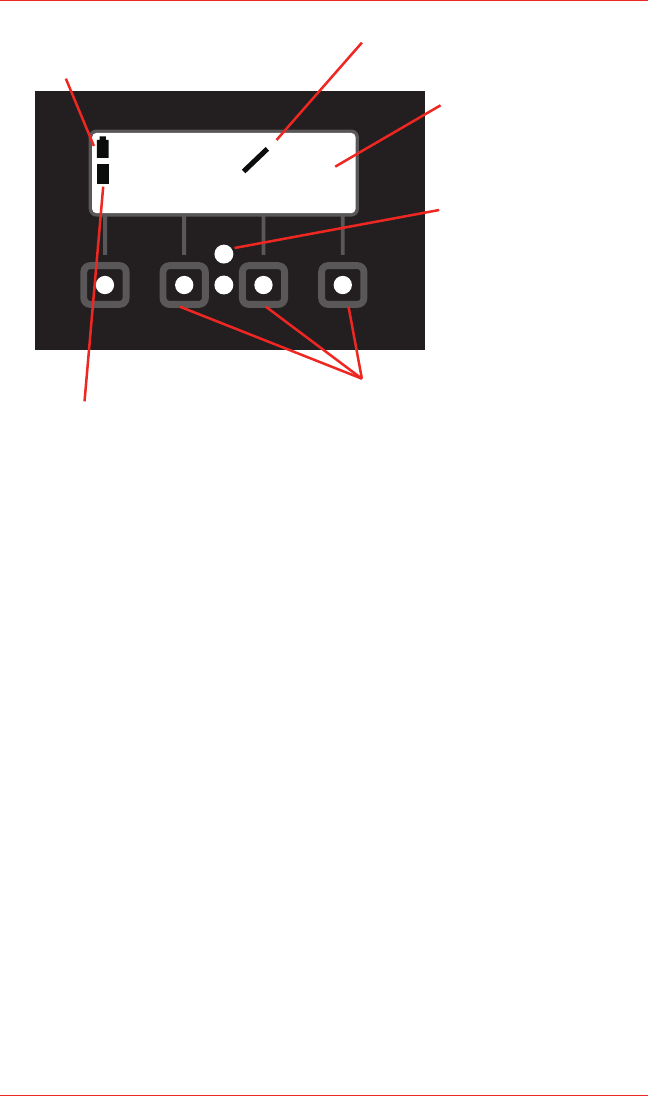
Honeywell EC-P2 Instruction and Installation Manual
10
MENU SMPL
PPM
NH
3
OFF
0
P
A
Power
BATTERY IN USE
P = Primary (“D” cell)
S = Standby (Internal NiCad)
Flashing indicates low battery
CURRENT GAS CONCENTRATION
(Blinking indicates sensor over range)
TARGET GAS
SMART-CELL dependent
ADVANCED FEATURES ONLY
Do not push for normal operation
ALARM INDICATION CODE
Blank = No alarm condition present
C = Caution—Cell has excessive zero downdrift
W = Warning—Gas concentration has exceeded warning level
A = Alarm—Gas concentration has exceeded alarm level
P = Pump trouble
Lg = Data logging in progress
Battery Light
Figure 2. Normal Operating Screen
2.3 Response Test
Prior to use, the unit should first be tested for proper response. With the detector
operating, the unit should be exposed to a sample of the target gas. The display should
show an increasing concentration. If not, do not use it for field measurements.
2.4 Sample Inlet Port
The Honeywell EC-P2 is provided with a quick disconnect flexible extension wand.
It will work with or without the wand. When using the extension wand, the internal
walls must be kept dry. Water on the walls of the tubing can potentially absorb the
target gas. To dry, allow the unit to pump dry, ambient air for 15 minutes.
2.5 Response/Recovery Time
Under normal conditions, the instrument will reach 90% of final value within two
minutes. This is dependent on concentration and temperature.
Recovery time for the sensor depends on duration and concentration of exposure.
Short exposures of concentrations at the lower end of the target gas range result in
rapid recovery. Long exposures to levels above the middle of the target gas range
or short exposures to levels exceeding the target gas range can extend recovery
times to hours. Repeated exposures above the target gas range will reduce cell life
and should be avoided.


















